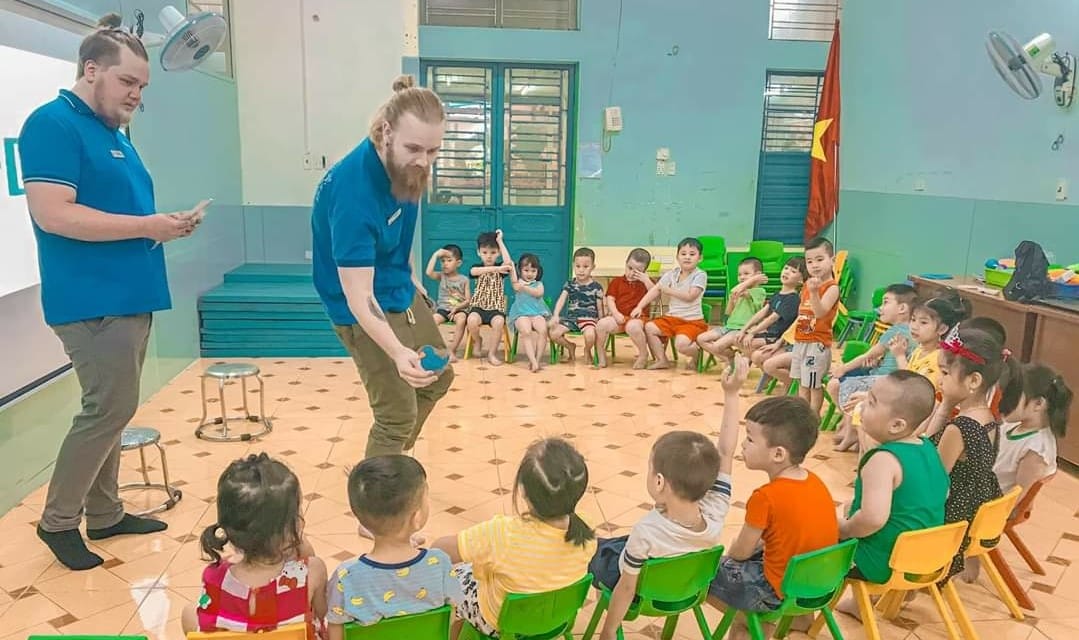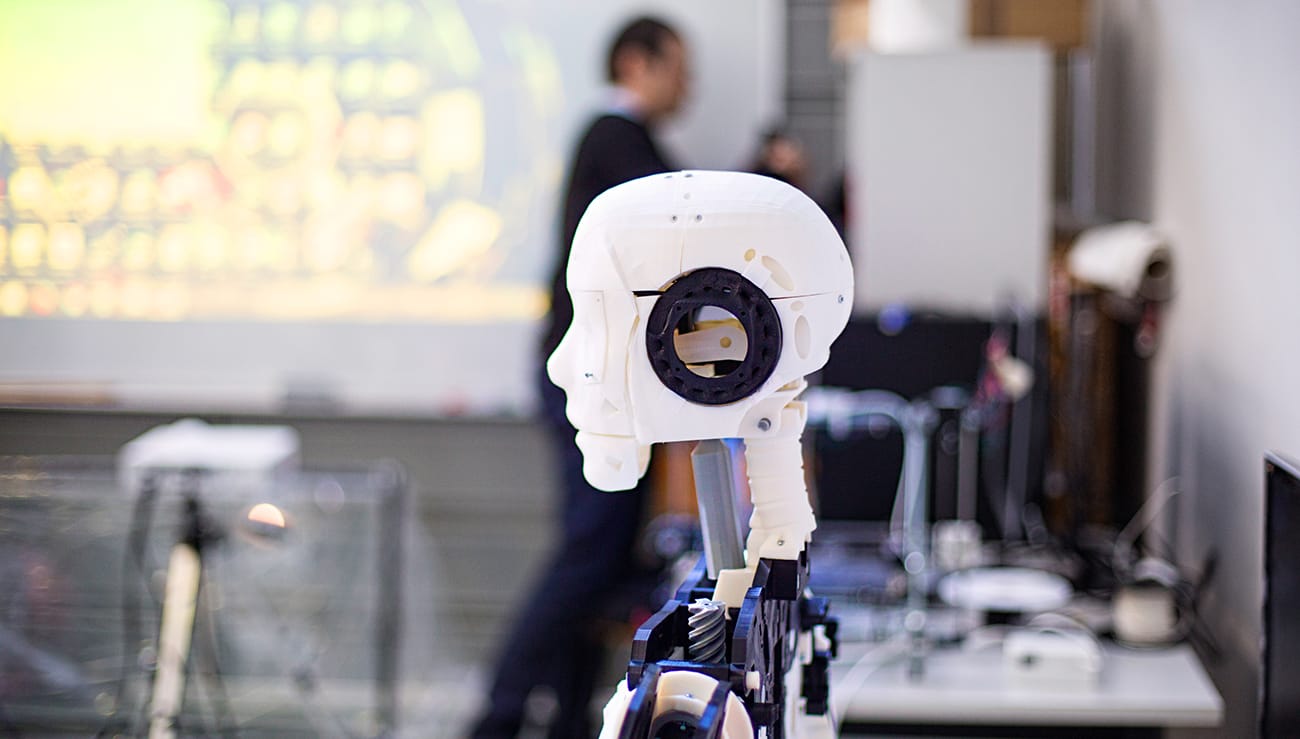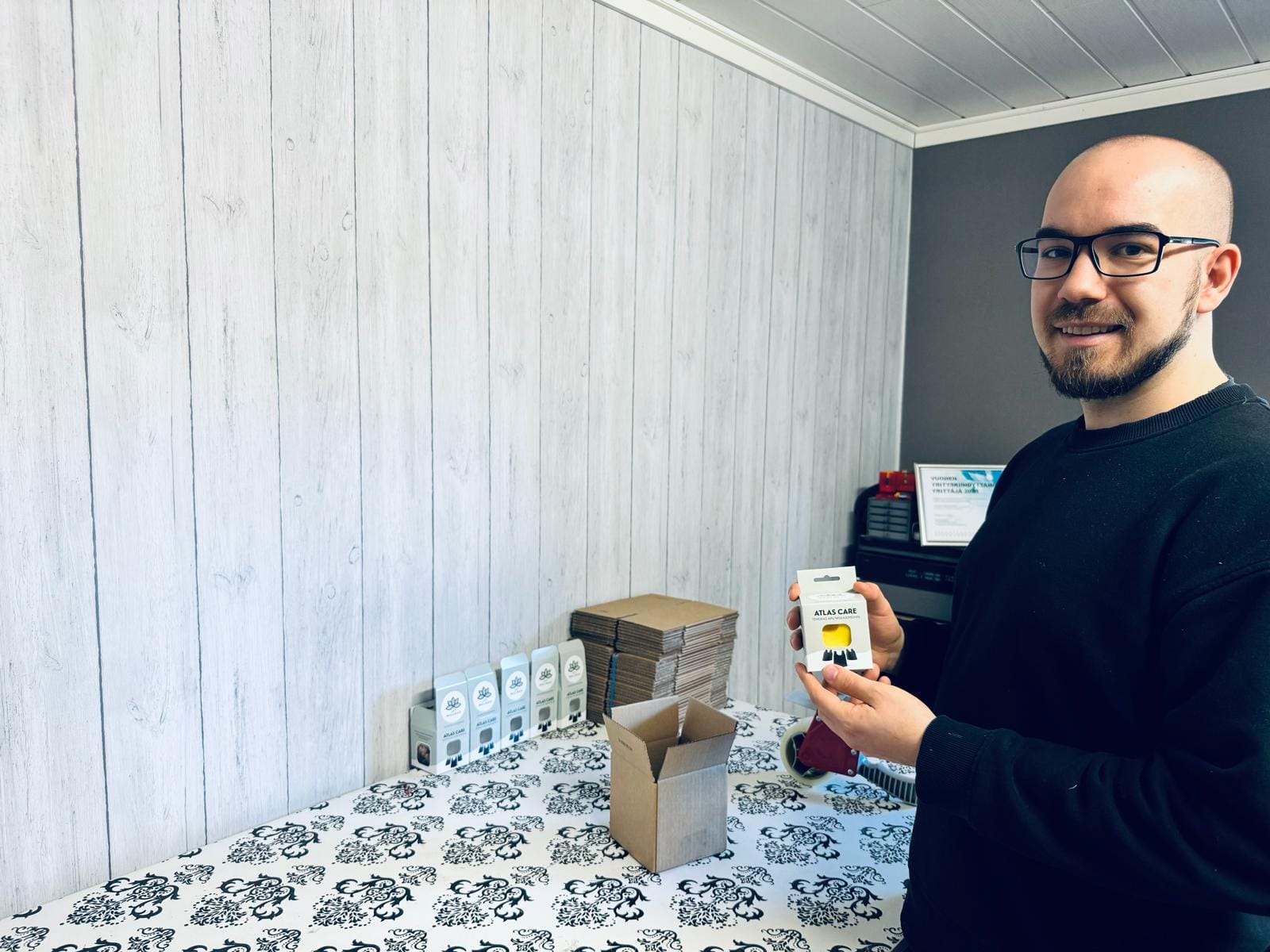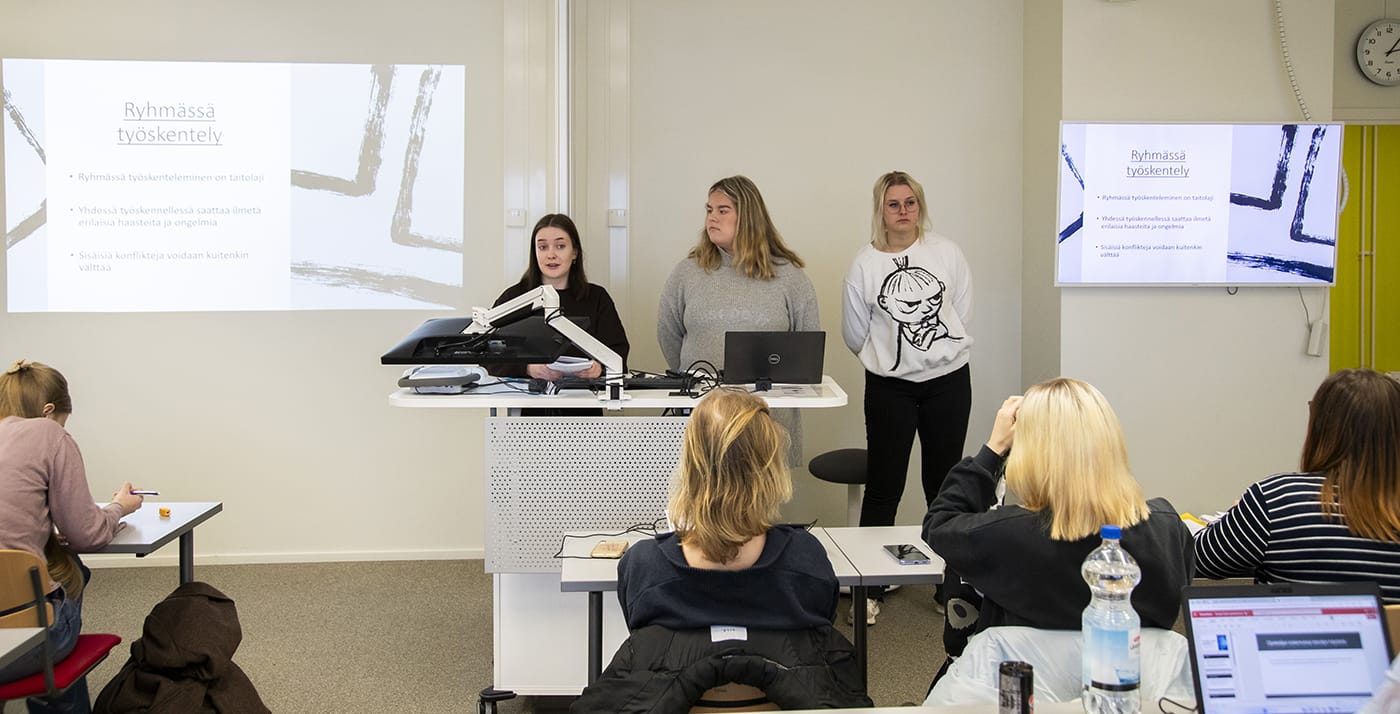Perseverance paid off when in practical training abroad during corona pandemic
Arttu Metsämäki and Ilkka Toivonen, students of Social Services, spent six months in practical training exchange in Vietnam during spring – summer 2020.

Metsämäki (left) and Toivonen teaching at cooperation day-care centre.
The aim of the international practical training was to create a Finnish-style early childhood education plan for a day-care centre to be built in Hai Phong in Vietnam with FiViEdu Global.
– The idea of international practical training came from our teacher, and it was easy to leave abroad to practical training. It was great to have an opportunity like this in our degree programme, Metsämäki and Toivonen tell us.
In practical training Metsämäki and Toivonen developed an early childhood education plan and a syllabus for the future day-care centre. After the completion of the day-care centre, the goal was to educate the personnel and arrange demo lessons.
– Besides planning work, our duty was to share Finnish early childhood education competence and bring knowhow and elements to day-care centre activities. We had weekly lessons for children at two of our cooperation day-care centres, where we mostly taught English, Toivonen relates.
Corona pandemic complicated plans
The first wave of the corona pandemic was at its height at the beginning of the year. Because of the pandemic, the economy collapsed and the founding of the day-care centre was put at risk. Metsämäki and Toivonen did not want to give up their positive attitude and decided to stay in Hai Phong.
– We decided to stay, because our thesis depended on this and we wanted to finish the development process. Corona affected the future of the whole project, but we wanted to believe that the job gets done in the end, Metsämäki describes.
Day-care centres and schools were closed for almost three months. Even though the founding of the day-care centre was not certain anymore, Metsämäki and Toivone were determined to keep on planning the matter.
– The time to wait seemed really long at times. During lockdown moving was difficult; wherever we went, there was always taking the temperature, face masks had to be worn and safe distances respected, Metsämäki recalls.
– On the other hand, we had plenty of time to dig in the plans and we finished lessons for a whole year. Strict measures to prevent the corona virus from spreading impressed us. The situation was taken seriously and we felt safe all the time, Toivonen adds.
Cultural differences can mostly be seen in the way to work
Where corona measures were strict and precise, other working could be more surprising.
– In Vietnam the tasks could come very suddenly and old plans were forgotten. At first, it was a bit stressful, but then you learned that this was the way they operated in that culture. The Finnish way of doing everything exactly according to schedule and tasks set in stone had to be forgotten, says Metsämäki.
– In Finland we are used to leaning heavily on plans and regulations. In Vietnam, the visual side of the planning process was the priority. When we were contemplating on the early childhood education principles for the new day-care centre and how they would work in those facilities, the local people were thinking of painting the walls. Different ways of looking at matters enrich our lives, Toivonen states.
Baffling tasks were also included in the journey, which was already interesting in itself. The duo ended up in presenting in a children´s programme on a local TV channel.
– We finally made six episodes for the programme. The contents were educational so they suited our studies well. It was quite an exciting experience, Metsämäki laughs.
– Every episode consisted of an educational part followed by a fairytale. We told about for example space and different natural phenomena such as how rain or wind are caused, Toivonen clarifies.
Stamina and positive attitude will get you far
The new day-care centre could not be built but facilities for functioning were however, arranged, and at the end of June the new facilities were found. Plans could be implemented and teachers hired, and even the planned demo lessons could be held.
– The most important thing for us was to get through our four main principles: the physical and mental safety of children, the structuring of everyday life, child orientation and the importance of play as well as early childhood education plan, Metsämäki sums up.
– In the end, it got busy because the opening of the day-care centre dragged on due to problems caused by corona. Luckily, we had kept on planning during these uncertain times because when the day-care centre was finally opened in June, we had everything ready for the demo lessons, Toivonen tells us.
Experience and successes most rewarding
Metsämäki and Toivonen brought back to Finland a subject for the thesis.
– We completed an early childhood education plan for the day-care centre and finished the project, so now we have a subject and a basis for the thesis, which is really rewarding, says Metsämäki satisfied.
– We had a chance to work abroad in the field that we study. The experience in itself was rewarding, Toivonen enthuses.
Metsämäki and Toivonen recommend international practical training for everyone. However, it´s worth packing an open mind and flexibility with you.
– Don´t go with too strong expectations, go with an open mind. You will be facing a new culture and new people and their way of life will expand your own perspective, Metsämäki gives advice.
– It´s definitely worth going on international practical training. We received a grant from SAMK and training support from the training placement organization. It is an excellent opportunity to get to know another culture and its working methods, Toivonen encourages.


